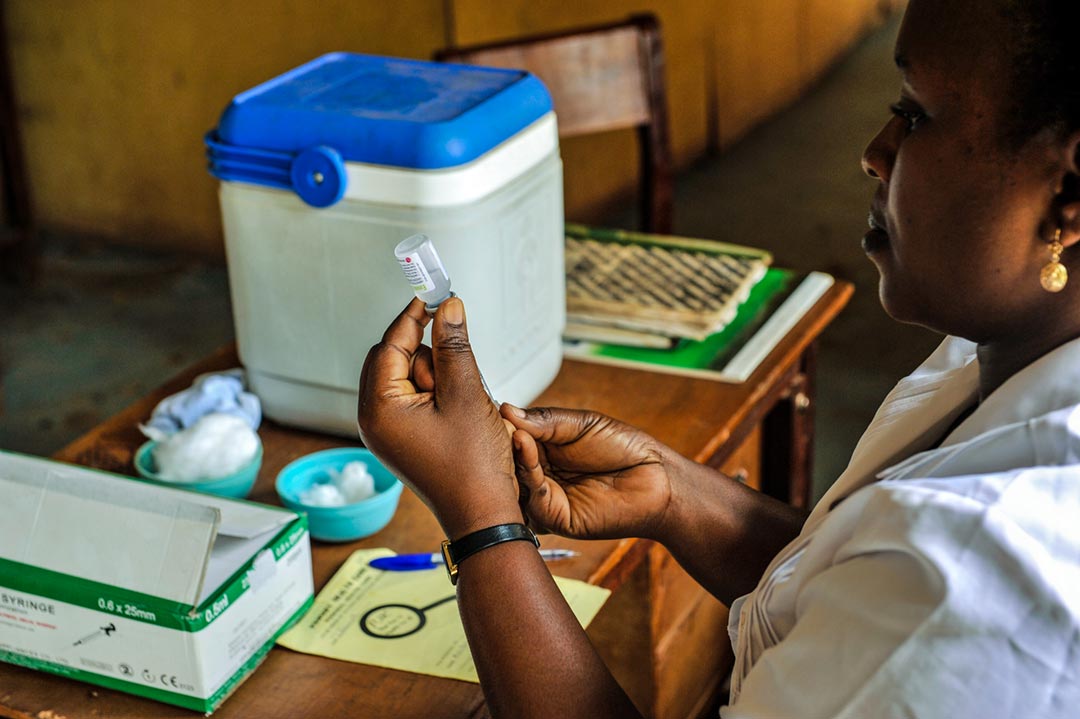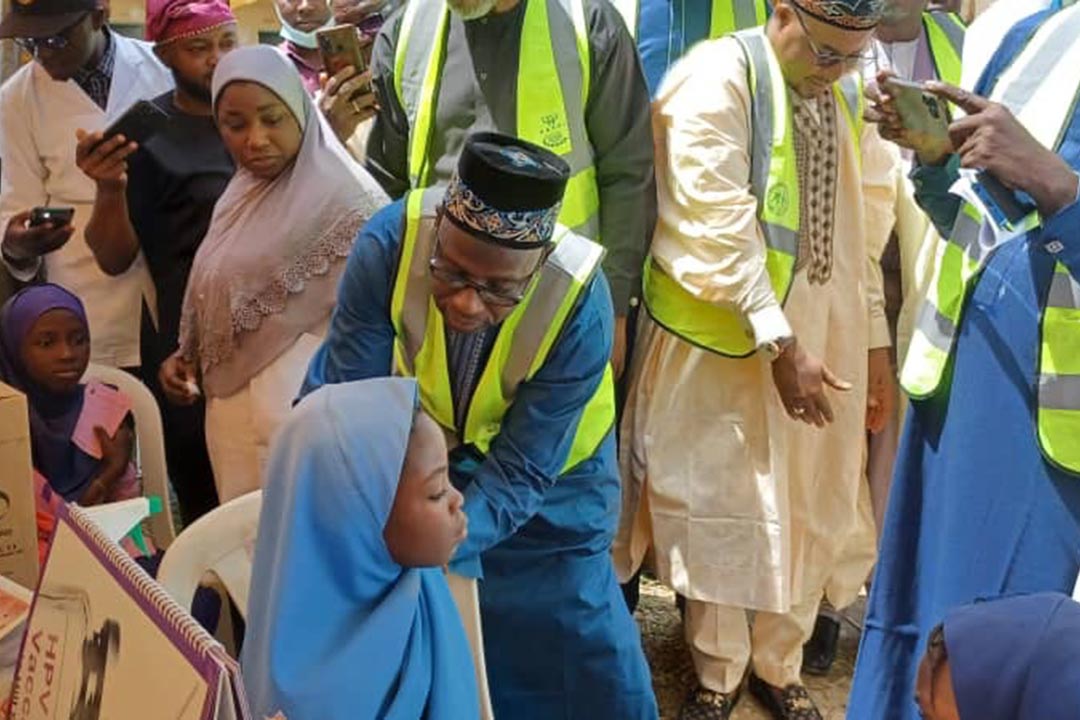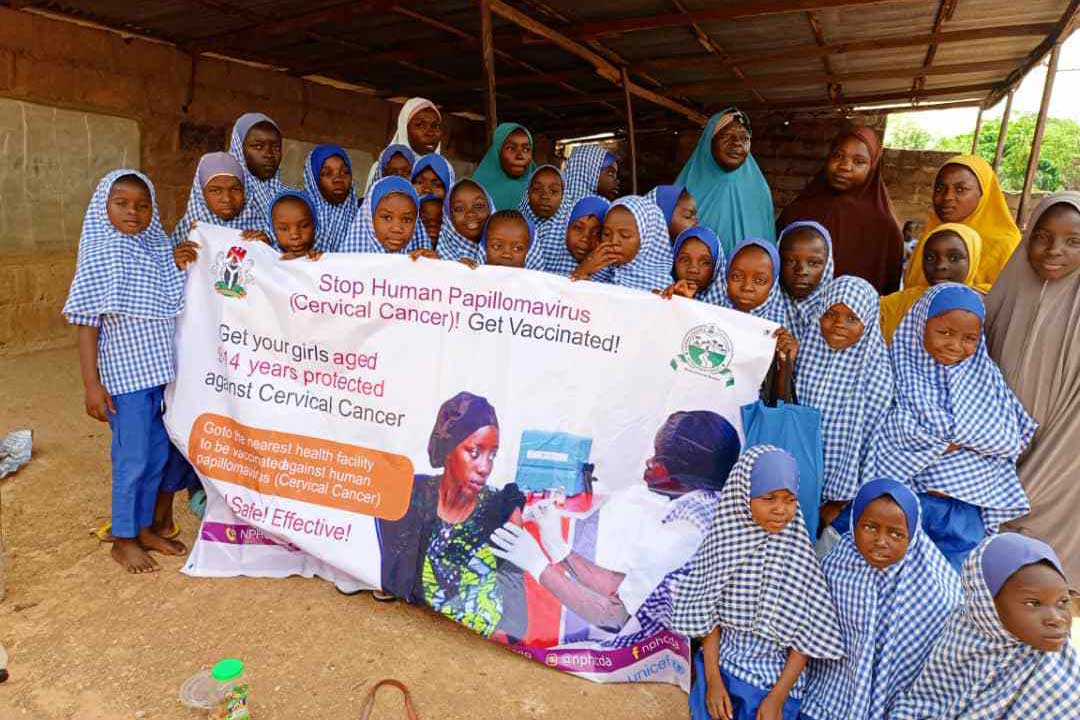Angels of hope battle monkeypox in Nigeria
As Nigeria battles its latest monkeypox outbreak, some individuals in the worst-hit communities are sacrificing personal safety to help health authorities bring the virus under control.
- 20 June 2022
- 4 min read
- by Eric Dumo

Haruna Bashi, a young farmer from Boga in Nigeria’s Northern region, has a handful of people to thank for being alive today.
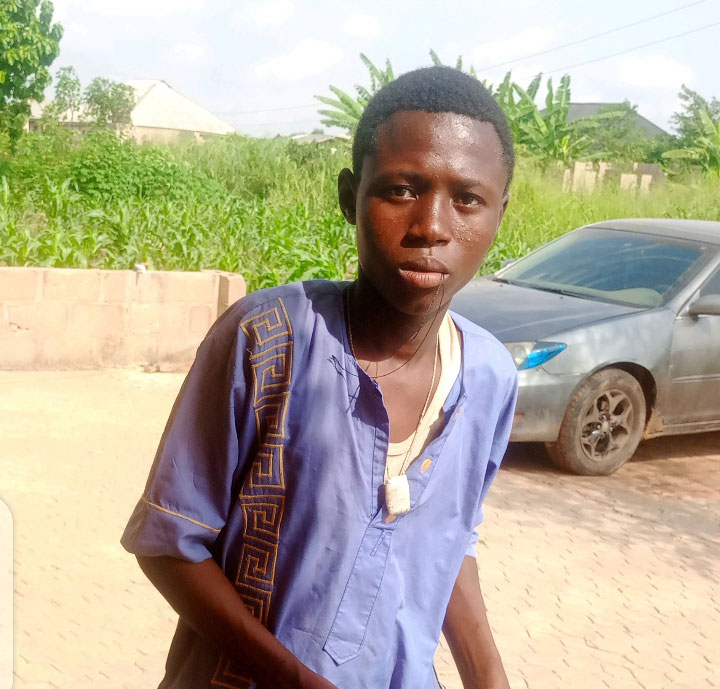
One of these is Ahmed Kabir, leader of a four-man volunteer group that helps to spread important information about diseases and outbreaks whenever and wherever they surface.
“After some tests were conducted on me, I was informed that I had the monkeypox virus,” the young farmer says. “I had no idea what that meant, but what I did know was, with my body temperature unusually high, there was the danger of losing my life.”
After learning of Bashi’s ‘strange’ illness in May and visiting him to see for himself, Kabir and his team ensured that the 24-year-old farmer’s situation was brought to the attention of health authorities at the government-owned medical facility in Yola, the state capital. Bashi was subsequently evacuated there for treatment. Without that intervention, it could have been an entirely different story.
“After some tests were conducted on me, I was informed that I had the monkeypox virus,” the young farmer says. “I had no idea what that meant, but what I did know was, with my body temperature unusually high, there was the danger of losing my life.”
Determined to help him get through, doctors and nurses ensured that, in the days that followed his admission, Bashi received the necessary treatment and he recovered.
“I cannot thank the medical workers enough as well as Kabir and his group for helping to save my life. Without these people, I don’t know what would have happened,” Bashi says.
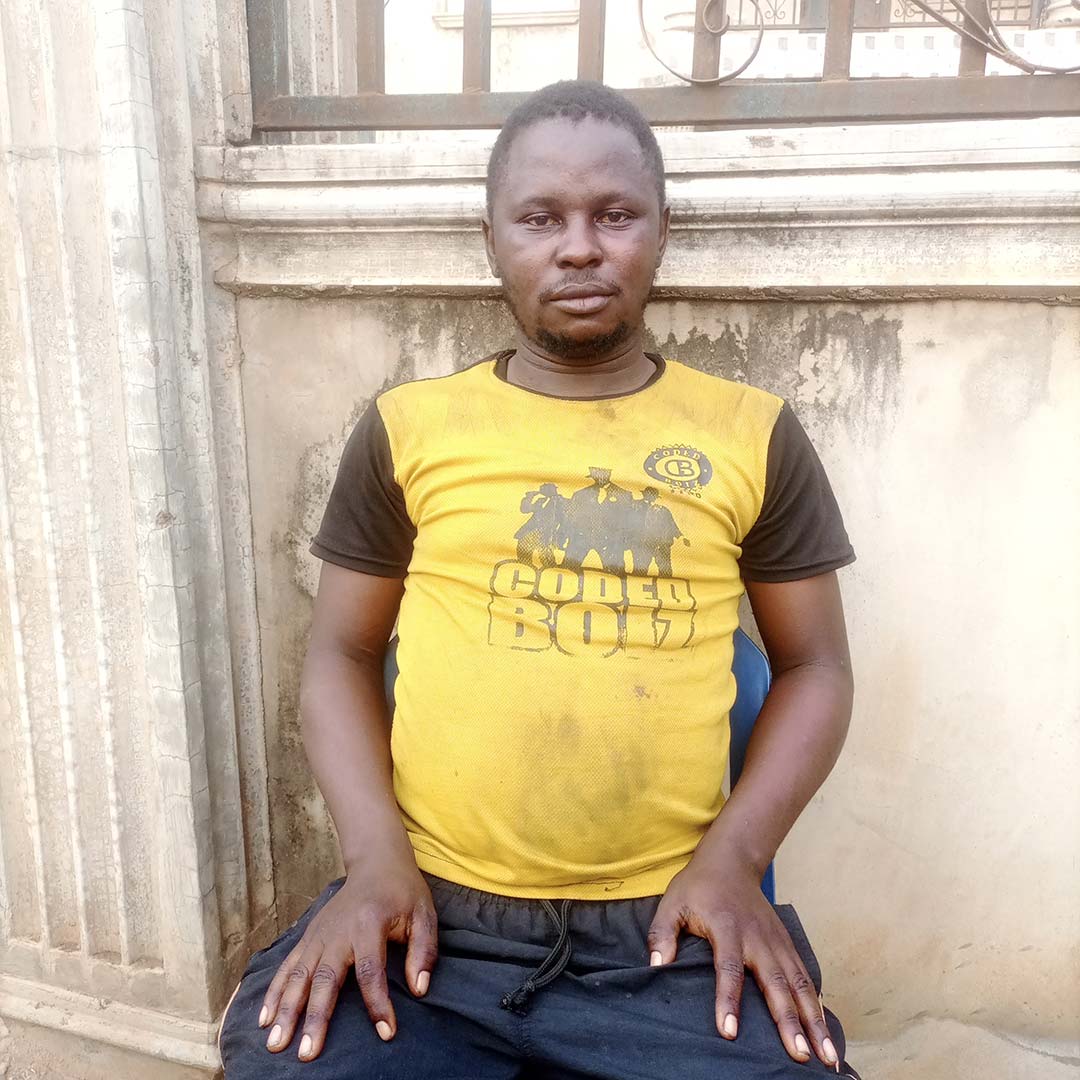
Kabir and his team are a key reason why Adamawa State still has only five recorded cases of monkeypox in 2022 so far. In addition to spreading awareness of the disease and how it can be prevented in rural communities, these volunteers have helped bring suspected cases to the attention of health authorities for medical intervention.
Have you read?
“I have been told, many times, that one day I will probably contract a virus and die because of the dangers involved in exposing myself to the infected individuals we try to rescue,” Kabir says.
“These words may be meant to scare me and stop me from doing what I do, but I have made up my mind to make this sacrifice, because saving the lives of others is what gives me joy.”
In Lagos, where four cases of the disease have been recorded in 2022, Adebimpe Raheem, a secondary school teacher and mother of three, is investing her time and personal resources to help raise awareness about monkeypox.
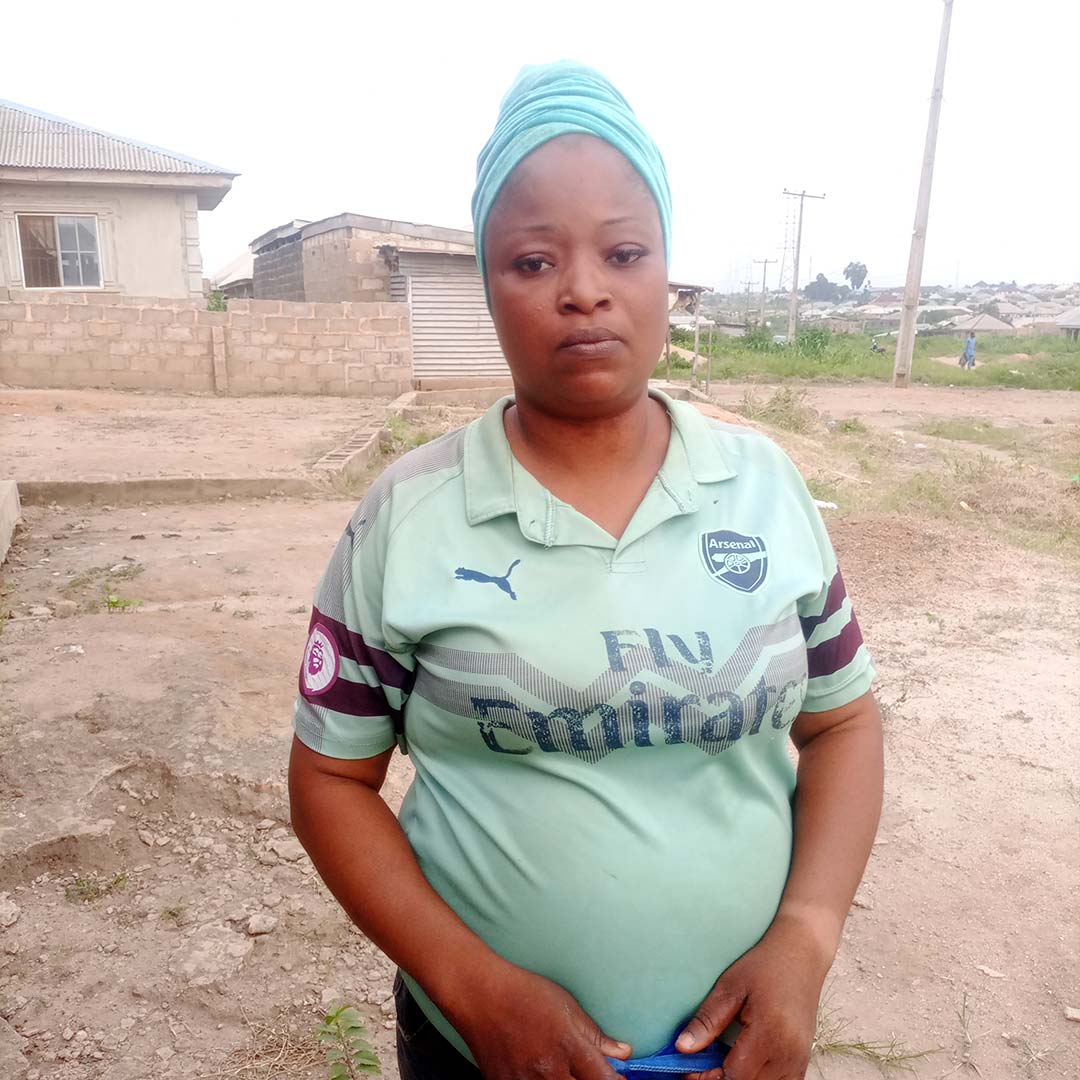
“I go to popular motor parks like Ikorodu and Ketu twice a week to tell people about the disease and how it can be prevented. Monkeypox is preventable if we all do the right thing. As a teacher, I find this venture a worthy cause to partake in as I am confident it will help prevent unnecessary deaths,” Raheem says.
On 30 May, Director-General of the Nigeria Centre for Disease Control (NCDC), Dr Ifedayo Adetifa, announced the first recorded monkeypox death, adding that there were 21 confirmed cases from nine states. Nigeria’s health authorities have moved very fast to bring the outbreak under control.
“The NCDC activated a national multi-sectoral Emergency Operations Centre for Monkeypox (MPX-EOC) at level-two to strengthen and coordinate ongoing response activities in-country while contributing to the global response. Following the detection of the index case on September 22, 2017, and the effective containment in Nigeria, the NCDC through the Monkeypox TWG worked on various interventions to gain a better understanding of the epidemiology of the virus to inform preparedness and response in-country,” Adetifa said at the time.
As part of the measures to further contain the outbreak, the Nigerian government has warned against the consumption of animals like monkeys and rodents believed to be main carriers of the virus causing the disease. It’s a move many consider timely.
